Shehbaz accepts invite for Moscow, Beijing visits
Transcript released by Putin’s office after meeting Shehbaz suggests Russian eagerness to deepen ties with Pakistan
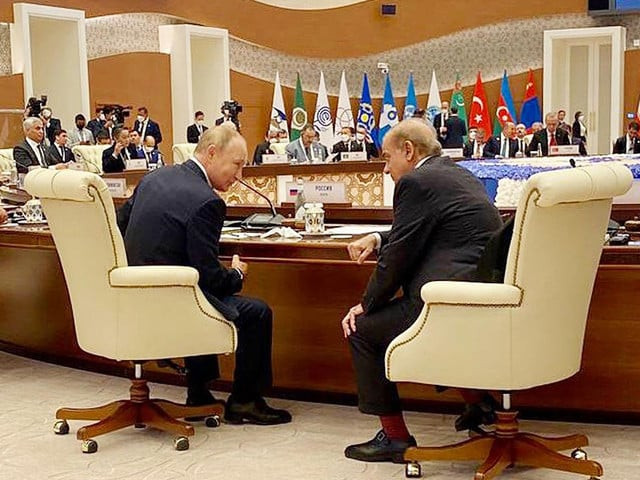
Prime Minister Shehbaz Sharif will travel to Beijing in November while he has also accepted an invitation from Russian President Vladimir Putin to a visit to Moscow in a telling move that contradicts claims that Pakistan may distance itself from the US adversaries following the ouster of former prime minister Imran Khan.
The development comes at a time when efforts are underway to reset the troubled relationship between Pakistan and the US.
A senior adviser of the US secretary of state recently visited Islamabad, while the US President Joe Biden Administration approved $450 million sale of the F-16 equipment in a sign that Washington wants to maintain a working relationship with Islamabad.
In the middle of all this, Shehbaz’s meeting with Russian President Vladimir Putin on Thursday and Chinese President Xi Jinping on Friday are significant and show that Pakistan is trying to maintain a delicate balance in its ties with big powers.
Read more: PM draws SCO's attention to making Pakistan-specific climate action plans
The transcript released by Putin’s office after meeting Shehbaz suggested Russian eagerness to deepen ties with Pakistan. At the same time President Xi in his maiden meeting with Shehbaz termed the Pakistani prime minister “a person of pragmatism and efficiency.”
Shehbaz also heaped praise on Putin, calling Russia a “superpower” and its president a “man of words”. On his part, the Russian president began his meeting with Shehbaz by recalling his working relationship with his elder brother, Nawaz Sharif, when he was the prime minister.
Observers believe that Shehbaz’s flurry of meetings with Russian and Chinese presidents indicated that Pakistan’s policy, seeking diversification in the country’s foreign policy options, remains intact.
While Pakistan has a long-standing relationship with China, the process of rapprochement with Russia began way before Pakistan Tehreek-e-Insaf (PTI) Chairman Imran Khan became the prime minister.
It was a consensus decision by the country’s parliament and other stakeholders in 2011 to reach out to Russia after Islamabad’s relationship hit the lowest ebb because of a series of debacles.
Since then successive governments, including Pakistan Peoples Party (PPP) and the Pakistan Muslim League-Nawaz (PML-N), had pursued the policy of normalising ties with Russia.
In 2015, the two sides signed an agreement under which Russia would lay a gas pipeline from Karachi to Punjab for supply of the liquefied natural gas (LNG). The project could not take off because of possible US sanctions but both sides did not give it up and are still making efforts to turn the project into a reality.
Also read: Putin offers Shehbaz gas to warm ties
In their Thursday’s meeting in the Silk Road city of Samarkand, Putin and Shehbaz brought up the Pakistan Steam Gas Pipeline project in their discussions. “There are very interesting and large-scale projects, namely the Pakistan Stream Gas Pipeline project, which involves building the infrastructure needed for the delivery of LNG,” Putin told Shehbaz.
The Russian president also offered Pakistan to supply gas through a pipeline. “This is possible as well, in view of the fact that some infrastructure is already in place in Russia, Kazakhstan and Uzbekistan,” he said.
Defence Minister Khawaja Asif, who attended the Putin-Shehbaz meeting, said in a tweet that the prime minister’s meetings with President Putin and President Xi were extremely successful.
He said both leaders invited Shehbaz on a visit to their respective countries. He confirmed that the prime minister would embark on his maiden visit to China in November, while he did not confirm the date of his visit to Moscow.

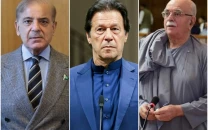
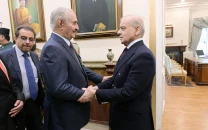
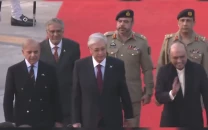
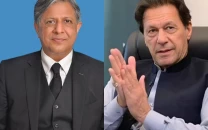














COMMENTS
Comments are moderated and generally will be posted if they are on-topic and not abusive.
For more information, please see our Comments FAQ